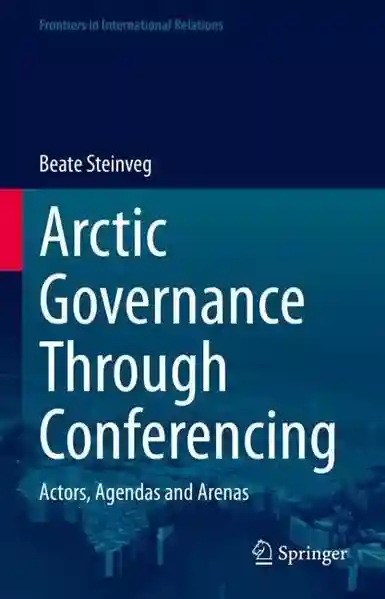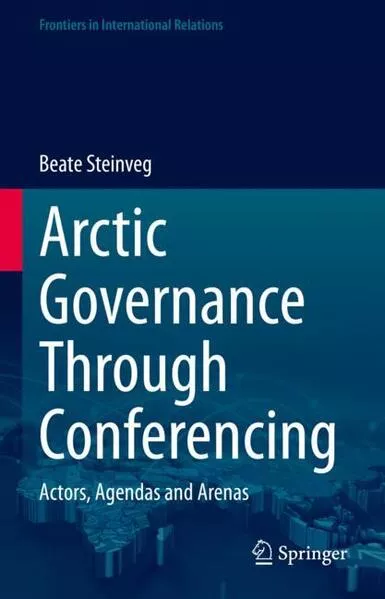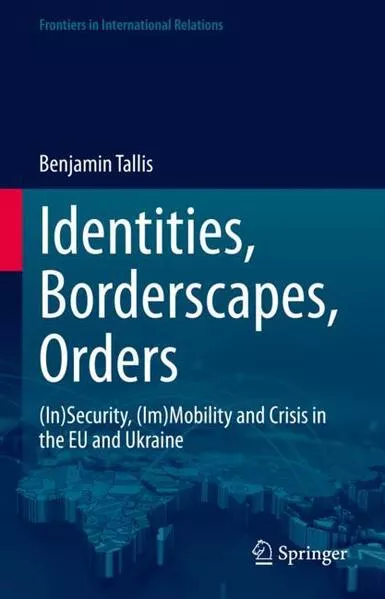Chronologie aller Bände (1 - 2)

Die Reihenfolge beginnt mit dem Buch "Arctic Governance Through Conferencing". Wer alle Bücher der Reihe nach lesen möchte, sollte mit diesem Band von Beate Steinveg beginnen. Der zweite Teil der Reihe "Identities, Borderscapes, Orders" ist am 21.02.2024 erschienen. Die Reihe umfasst derzeit 2 Bände. Der neueste Band trägt den Titel "Arctic Governance Through Conferencing".
- Anzahl der Bewertungen für die gesamte Reihe: 0
- Ø Bewertung der Reihe: 0
- Start der Reihe: 10.02.2023
- Neueste Folge: 29.02.2024
Diese Reihenfolge enthält 2 unterschiedliche Autoren.
- Autor: Steinveg, Beate
- Anzahl Bewertungen: 0
- Ø Bewertung:
- Medium: Buch
- Veröffentlicht: 10.02.2023
- Genre: Politik
Arctic Governance Through Conferencing
The book further presents an in-depth case study of the two largest conferences on Arctic issues: the Arctic Frontiers and Arctic Circle Assembly. It illustrates the diverse functions conferences can have for elements within a broader governance system, beyond serving as meeting places and networking arenas. Therefore, it is a must-read for researchers, students, and policy-makers interested in a better understanding of Arctic governance in particular, and International Relations in general.
- Autor: Tallis, Benjamin
- Anzahl Bewertungen: 0
- Ø Bewertung:
- Medium: Buch
- Veröffentlicht: 23.02.2023
- Genre: Politik
Identities, Borderscapes, Orders
This book provides a pre-history of Russia's war on Ukraine and Europe’s relations to it, illuminating the deep roots of the EU’s neighbourhood crisis as well as the migration crises the Union created in the last decade. To do so, the book employs a new and innovative framework that allows for a comprehensive, yet nuanced analysis of borders and a more cogent interpretation of their socio-political consequences.
Drawing on interdisciplinary scholarship the book analytically examines the key common elements of borderscapes and links them in related arrays to allow for nuanced evaluation of both their particular and cumulative effects, as well as interpretation of their overall consequences, particularly for issues of identities and orders. The book offers a significant conceptual and theoretical advance, providing a transferable conceptualization of borderscapes to guide research, analysis, and interpretation. Drawing on the author’s experience in policy, practice and academia, it also makes a methodological contribution by pushing the boundaries of reflexivity in interpretive International Relations (IR) research.
Analyzing three main sites in Central and Eastern Europe (CEE), the book challenges conventional critical wisdom on EU bordering in the Schengen zone, at its external frontiers, and in its Eastern neighborhood. In so doing, it sheds new light on the politics of post-communist transitions as well as the contemporary politics of CEE. It also shows how EU bordering and its relations to identities and orders created great benefits for many Europeans, but also hindered the lives of many others and became self-defeating. This book is a must-read for scholars, students, and policy-makers, interested in a better understanding of Critical Border Studies (CBS) in particular, and International Relations in general. It will also appeal to anyone interested in CEE or wishing to get a deeper understanding of Russia’s warand the fight for Europe’s future.

